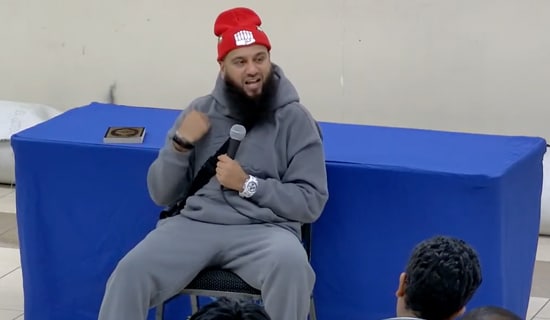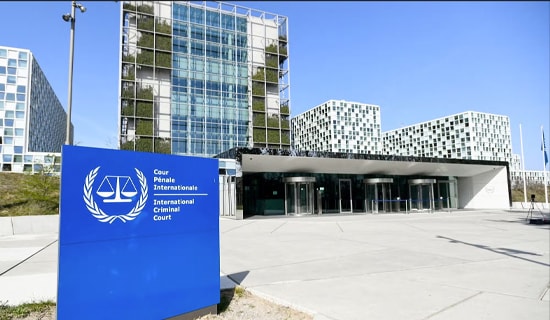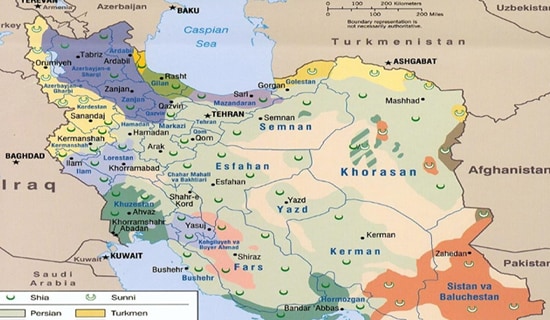On October 31, 2016, the Lebanese parliament will convene and is expected to vote in Free Patriotic Movement leader and Hizbullah ally Michel Aoun as president of Lebanon; he is Hizbullah's sole candidate. The move follows a deal struck between Aoun and former Lebanese prime minister Sa'd Al-Hariri, leader of the Sunni Al-Mustaqbal stream, under which Aoun, if elected, will assign Al-Hariri the task of forming the next government.
This move by Al-Hariri has significant implications for the intra-Lebanese political arena and for the regional power balance. Therefore it has encountered criticism both within and outside Lebanon. This move represents a surrender by the March 14 Forces, headed by Al-Mustaqbal, to Hizbullah's will, and reinforces the position of Hizbullah's patron Iran at the expense of Saudi Arabia.
The following report reviews Al-Hariri's decision, the reactions it has encountered, and what it means for Lebanon and the region.
Hizbullah Ally Aoun Expected To Be Chosen President
On October 31, 2016, the Lebanese parliament will hold its 46th presidential selection session since Michel Suleiman's term ended two-and-a-half years ago. That session is expected to choose Free Patriotic Movement founder Michel Aoun, who is an ally of Hizbullah, as president. Aoun's selection will end a two-and-a-half-year presidential vacuum that resulted from disagreement over Suleiman's successor from among the country's opposing streams - primarily Al-Mustaqbal, led by Sa'd Al-Hariri, and Hizbullah, which together with Aoun stymied the formation of the quorum that is necessary to elect a president. The breakthrough in the talks over the selection of a president came when Al-Hariri and Aoun reached an agreement under which Al-Hariri would support Aoun's presidential candidacy and in return Aoun would task Al-Hariri with forming the new government, which would be a national unity government as stipulated in the agreement.[1] This constitutes an Al-Hariri surrender to Hizbullah, which sought an Aoun presidency. It should be mentioned that Al-Hariri's support for an overt Hizbullah ally is not unprecedented; a year ago, Al-Hariri announced his support for another ally of Hizbullah, and of Syrian president Bashar Al-Assad, Suleiman Frangieh, for the post of Lebanese president.[2]
Al-Hariri announced his support for Aoun in an October 20, 2016 speech, saying that by supporting him he was aiming to save Lebanon from dangerous leadership and economic crises which could, in turn, lead to a new civil war.[3]
Two days later, on October 22, Hizbullah secretary-general Hassan Nasrallah announced that his party's MPs, who had been boycotting presidential selection sessions, as had MPs from other parties including Aoun's own Change and Reform bloc, would be attending the October 31 session and would be choosing Aoun. Nasrallah added that Hizbullah had no objections to Al-Hariri's serving as prime minister in the new government.
These statements by Al-Hariri and Nasrallah pave Aoun's path to the presidential palace, even though obstacles and uncertainty remain, both in Lebanon and in the region, in this matter.
Various Lebanese Elements Oppose Aoun's Appointment As President
The opposition to Aoun's appointment comes mainly from Lebanese parliamentary speaker Nabih Berri, and from Suleiman Frangieh, who is running against Aoun in the presidential race. Both Berri and Frangieh are March 8 Forces members and open Hizbullah allies. Berri even announced that he would not be part of the government that would be established under the Al-Hariri-Aoun deal, and questioned the deal's future, saying that it had been arrived at by two sides only, without taking into account the country's main political elements, himself among them. Druze leader and centrist bloc member Walid Jumblatt, who is another major Lebanese political figure, has not yet expressed a position on this matter, but it is thought that he will back Aoun.
On the other side as well, some in Al-Hariri's Al-Mustaqbal party and in the March 14 Forces in general oppose this deal. Immediately after Al-Hariri's October 20 announcement of support for Aoun, another former prime minister, Fouad Al-Siniora, the head of the Al-Mustaqbal party, (a component of Al-Hariri's broader Al-Mustaqbal stream) announced that he would not join Al-Hariri in backing Aoun for president. Al-Siniora was joined by other party members, including parliamentary vice president Farid Makari, MPs Ahmad Fatfat and Ammar Houri, Telecommunications Minister Boutros Harb of the March 14 Forces, and March 14 Forces secretary-general Fares Souaid.
Along with the opposition to an Aoun presidency within the Al-Mustaqbal party, other Sunni public figures also objected to the deal, among them Justice Minister Ashraf Rifi, former director-general of the Lebanese Internal Security Forces and a former Al-Hariri supporter. Last year, Rifi harshly attacked Al-Hariri for his support for Hizbullah and Syrian regime ally Suleiman Frangieh. On October 22, 2016, two days after Al-Hariri's announcement of his support for Aoun as president, Rifi organized an anti-Aoun protest in Tripoli called "Proud Tripoli Rejects the Candidate of Iranian Patronage." The next day, October 23, a convoy of vehicles from Akkar in the north of the country made its way to Rifi's home in Tripoli bearing posters of him and expressing support for his position on this matter. It should be mentioned that in the past year, Rifi has gradually chipped away at overall Lebanese Sunni support for Al-Hariri, as evidenced by his party's landslide victory over Al-Hariri's party in the mayoral elections in Tripoli, the city with the largest Sunni concentration in the country.
Many in the Al-Mustaqbal party, the March 14 Forces, and the Sunni public who oppose the Al-Hariri-Aoun deal see Al-Hariri's support for Aoun as yet another concession to Hizbullah and the pro-Iran axis that backs it, and to Hizbullah as an armed state within a state.[4] They accuse Al-Hariri, inter alia, of seeking to become prime minister by selling out Sunni interests and the political legacy of his father Rafiq Al-Hariri, whose 2005 assassination, when Syria was the real power in Lebanon, is thought to have been carried out by five senior Hizbullah officials.
Addressing critics of his deal, Al-Hariri explained his support for Aoun as well as his previous support for Frangieh: "I am willing to take the risks a thousand times over, just as I am willing to risk myself, my people, and my political future, to defend Lebanon and its people."[5]
Al-Hariri's Choice Of Aoun Is A Political Victory For Hizbullah
Al-Hariri's move to support the Hizbullah candidate and ally Aoun has major implication for the internal Lebanese political arena. It constitutes another successful attempt by Hizbullah to impose its wishes there and a further weakening of the country's main Sunni force, the Al-Mustaqbal party. This triumph for Hizbullah comes at a time when it is mostly preoccupied outside of Lebanon's borders, primarily with fighting alongside the Assad regime in Syria, as well as elsewhere in the Arab world as a proxy of Iran. The organization has fortified its position within Lebanon by virtue of its network of political alliances in the country, as well as by virtue of the quantity of weapons in its possession.
Ibrahim Al-Amin, head of the board of directors of the Lebanese daily Al-Akhbar and a known Hizbullah supporter, argued that the March 14 Forces, including the Al-Mustaqbal stream, show "the symptoms of card-game addicts," who delude themselves that they can win and are "unwilling to give up" even when it is clear that it is Hizbullah who is actually directing events on the ground.[6]
At the same time, Hizbullah's success in pushing its own candidate through is also a result of the political weakness of its rivals, particularly the Hariri-led Al-Mustaqbal stream, who wants the premiership at nearly any cost in order to strengthen his own political status in the country and perhaps his economic status as well.
An Aoun presidency does not mean that the issues contributing to the vast schism between the sides in Lebanon will be resolved, among them the disarming of Hizbullah as demanded by the March 14 Forces - Aoun opposes the organization's disarmament.[7] As president, Hizbullah ally Aoun would be in charge of a number of security and military portfolios, aggravating the tension between the sides and jeopardizing the army's independence .
Additionally, the Al-Hariri-Aoun deal does not guarantee that Al-Hariri will actually succeed in forming a government, because of the opposition he faces both inside and outside Lebanon. The deal with Aoun could also harm Al-Hariri's status among his traditional Sunni support base, thus weakening him in the upcoming spring 2017 parliamentary elections.
An Aoun Presidency: Ramifications For The Regional Power Balance - Down With Saudi Arabia, Up With Iran
Since Lebanon's future depends on the regional political balance, with Iran, Syria, and Saudi Arabia the patrons of various local Lebanese political players, Al-Hariri's move has regional ramifications. His surrender to Hizbullah's wishes reflects the strengthening of Iran, which has exploited the Syrian civil war to deepen its penetration of the region and of Lebanon in particular. Electing the Hizbullah presidential candidate Aoun will definitely serve future pro-Iran interests in Lebanon at the expense of Sunni interests in Lebanon, and also at the expense of Saudi Arabia, which views itself as the protector of these interests.
Saudi Arabia has previously backed Al-Hariri's past substantial political moves even if these moves haven't always served Saudi political interests in Lebanon or elsewhere. It is still unclear whether his deal with Aoun has Saudi support, and the Lebanese press has published conflicting reports on the matter. As yet, there has been no official Saudi comment on this, but recent articles in the Saudi press indicate a lack of support for Al-Hariri's deal with Aoun. However, following a lengthy Saudi silence, Saudi Gulf Affairs Minister Thamer Sabhan, who visited Beirut on October 27 said that his country would not intervene in the selection of Lebanon's president and would support the president chosen by the Lebanese.[8]
There were also reports in the Lebanese press noting that Al-Hariri's political status in Lebanon is declining, and that the Saudis no longer consider him the sole representative of the Sunnis in Lebanon, but only one such representative.
It should be noted that in previous years, Saudi Arabia, as the leader of the Sunni world, played a key role in the selection of Lebanese presidents, as did Syria, which together with Hizbullah's patron Iran represented the resistance axis. Al-Hariri's choosing Aoun for president without full Saudi backing reflects a decline in Saudi influence in Lebanon, and in Saudi Arabia's regional status in general. In this context, a report in the Lebanese daily Al-Safir, a known supporter of the resistance axis, claims that Egypt was involved in promoting Aoun's prospects for the presidency.[9] A possible inference from this report is that Egypt is attempting to step into Saudi Arabia's shoes in Lebanon in an attempt to restore its status in the Arab world, and particularly in the Sunni world.
Articles in the daily Al-Akhbar, known for its pro-Hizbullah line, addressed the regional implications of Al-Hariri's gambit and gloated that the move reflected Saudi Arabian weakness. Al-Akhbar columnist Ghassan Saoud wrote that an Aoun presidency would be a manifestation of "Hizbullah's ability to break the international will, and the Saudi will."[10]
However, Al-Akhbar board chairman Ibrahim Al-Amin wrote in an editorial that wars in the Arab region created a reality that was forcing the March 14 Forces to see the choice of Lebanese president differently, and that they needed to realize that the Saudis can no longer help them. As he usually does, he concluded his piece with implied threats, stating: "Anyone who does not want anarchy in Lebanon has no alternative but to choose Aoun for president."[11]
Endntoes:
[1] One of the main political players pushing for an Aoun presidency is Samir Geagea, chairman of the Lebanese Forces party. In January 2016, after a long period of talks, Geagea and Aoun, formerly bitter Christian political rivals, agreed that Geagea would support Aoun's presidential bid. One of the main reasons behind Geagea's decision to do so was Al-Hariri's previous support for the presidential candidacy of Suleiman Frangieh - a fierce rival of Geagea who had been accused of killing several members of the Frangieh family during the country's civil war.
[2] Similarly, in 2008, during another presidential interregnum, the March 14 Forces and Al-Hariri were forced to make concessions to Hizbullah, which was included in the newly formed Fouad Siniora government; this took place at the Doha conference. The most important concession won by the Hizbullah-led March 8 Forces, as stipulated in the government guidelines, was the legitimation of the Resistance (which allowed Hizbullah to operate as an independent armed force within Lebanon). Hizbullah also received enough cabinet seats to veto any government decision, and Hizbullah subsequently used this veto power against Al-Hariri's government in 2011. Hizbullah obtained these concessions following the leadership vacuum, a lengthy sit-in by Hizbullah and its allies in central Beirut, and especially following the violent events of May 7, 2008, during which Hizbullah gunmen seized control of Beirut and other areas in the country.
[3] Al-Mustaqbal (Lebanon), October 21, 2016.
[4] See MEMRI Inquiry & Analysis Series Report No. 1092, Al-Mustaqbal Losing Ground As Representative Of Lebanese Sunnis, May 19, 2014.
[5] Al-Mustaqbal (Lebanon), October 21, 2016.
[6] Al-Akhbar (Lebanon), October 24, 2016.
[7] In an interview with Al-Akhbar, Lebanese Foreign Minister Gebran Bassil, who is Aoun's son-in-law and heads the Free Patriuotic Movement founded by Aoun, said that the movement supports Hizbullah's retention of its weapons. Al-Akhbar (Lebanon), October 22, 2016.
[8] Al-Watan (Saudi Arabia), October 28, 2016.
[9] Al-Safir (Lebanon), October 25, 2016.
[10] Al-Akhbar (Lebanon), October 27, 2016.
[11] Al-Akhbar (Lebanon), October 24, 2016.








